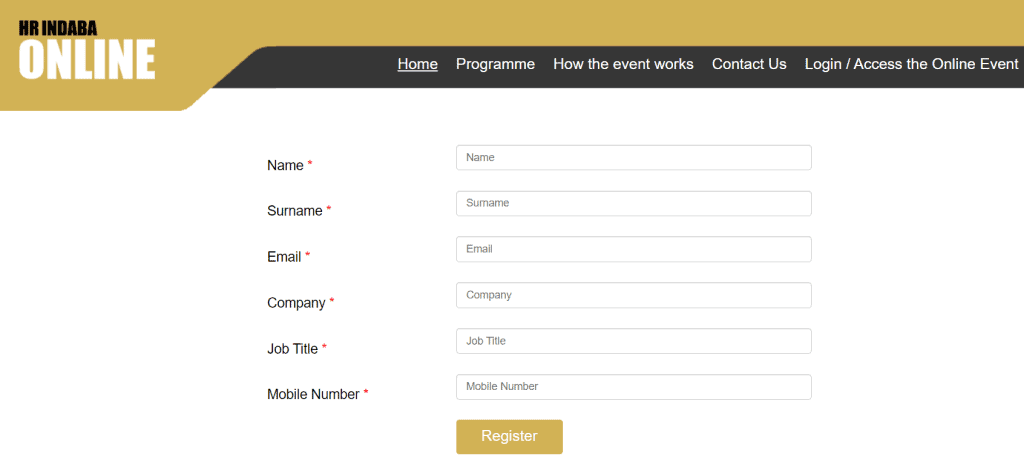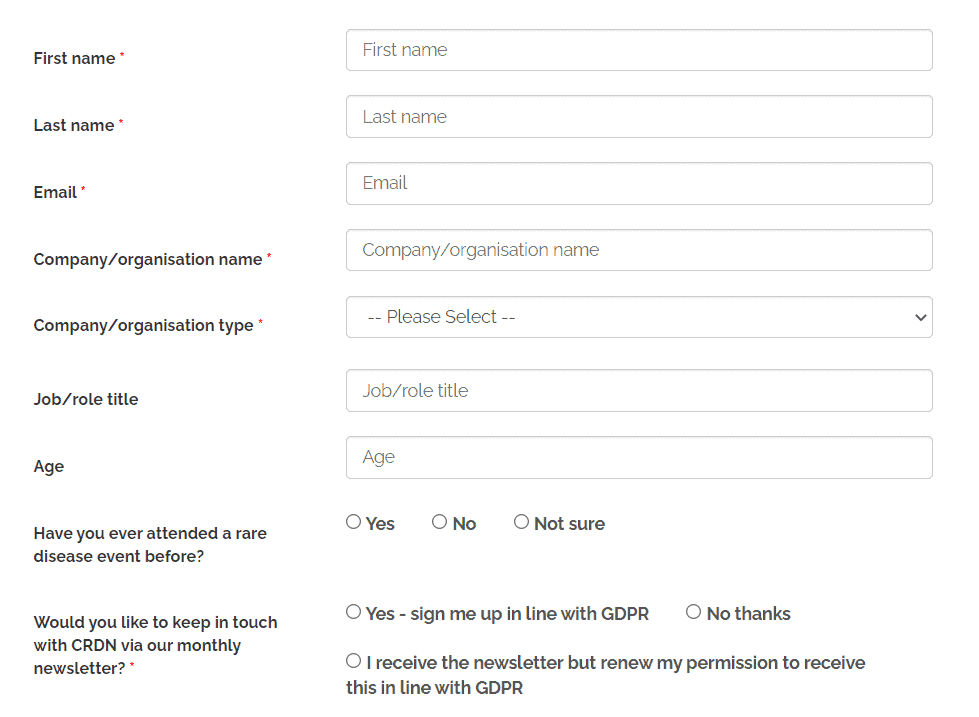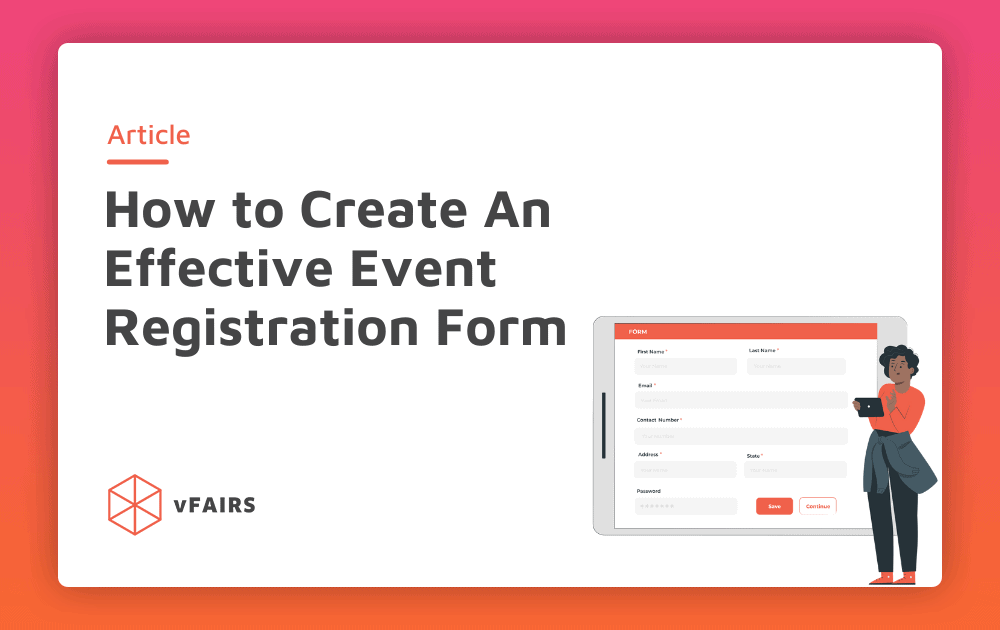Planning your Event Registration Form
How much thought do you put into your event registration form? Is it part of your event planning process, or is it something you address as you’re creating the form?
It might not feel important to consider your registration form upfront in the event planning process. However, it’s a great place to collect valuable information that can improve your event strategy. Just as each event has its own unique goals, each event registration form should collect different types of information. Additionally, the platform you choose to collect registrations and your promotional activities will all add to your attendees’ experiences and help make your event a success.
Let’s talk about how you can create an effective online event registration form for your next event.
Aligning Your Goals With Registration Fields

Think about what information will help support your event goals, or help you track event success metrics. However, you only want to ask questions that provide the most useful information to your team.
You may be looking to achieve a few different goals with your event. In this case, you can mix and match questions, but remember there should be purpose behind each question. It should also be quick and easy for your registrants to complete.
Keep your form concise. Asking too many questions will overwhelm users and, potentially, deter them from completing the registration. We recommend including a maximum of 10 questions if possible, even less if you’re able to.
Here are some of the goals you might be looking to achieve, and how to address them in your registration form.
Goal: Lead Generation
Events are a popular way to collect new leads, especially at virtual trade shows. What better way to kick off your lead gen efforts than through registration? If you’re using a CRM platform, you can integrate it with your virtual events platform so that your registrants can be migrated as new contacts automatically. If you’re using a registration form that doesn’t allow you to integrate with your CRM, apps like Zapier allow you to connect the two.
Include:
- Contact info
- Preferred communication methods
- Opt-in to receive further information
Goal: Content Development
You may already have an agenda ready to go, but you can still tailor your content based on the interests people express in their registration form. Asking questions about what topics or information your attendees are most interested in will help you, your exhibitors, and your sponsors understand what content to focus on. Use this info to develop presentation materials, downloadable documents, and speaking notes for your representatives, and in turn increase engagement within your event!
Include:
- Topics of interest
- Question: What do you hope to take away from this event?
Goal: Target market insights
Keep a pulse on which segments of your target markets are most engaged, and understand which channels are helping to drive action on your initiatives by asking about their demographics and what referred them to your event. You can use that information to focus more on those customer segments and channels leading up to and during the event, and afterward when you seek to target highly engaged audiences.
Include:
- Demographics: age, location, role, industry
- Question: How did you hear about this event?
** Sidenote: Understanding your audiences’ locations will not only help you get a good idea of where your prospects are coming from but also help you understand when to schedule various presentations or activities during your event – this is especially important if you’re targeting a global audience
Goal: Optimizing user experience
Optimize user experience by sending registrants pre-event communications tailored to each track. If you’re using a marketing automation platform, you could create a drip campaign for each group where email communications showcase presentations and exhibits tailored to their preference. You can also use this info to understand which tracks will be getting the most traffic and allocate your time to perfecting the most popular areas.
Include:
- Track selection
Goal: Selling tickets

Perhaps it’s a bit obvious to mention you should include a ticket option or payment field when selling tickets to your events, but it’s important to also consider that you can tier your ticket options. Make sure to discuss whether you’d like to offer tiered ticket pricing in your planning process, and clarify what benefits each level would offer.
Perhaps, for example, a basic ticket includes access to all presentations and an exhibit hall, but the next level includes an invite to an exclusive group video chat with a leading industry expert.
Include:
- Ticket selection with benefits of each ticket level
- Payment processing form (such as Paypal or Stripe)
Maximizing Registrations
If you’re looking to maximize participation at your event, make sure you’re promoting it! Here are a few promo tips to help drive people to your registration form.
- Publish your event on an events board. Eventbrite and Meetup are great places to post, as people frequently check to see what events are upcoming! Create an event page on one or a few of these platforms, and remember to include a link that leads them to your registration form.
- Include a CTA in your follow-up emails to get those who have already registered to invite guests! Make it easy for them. Create a link to an email invite template that they can send to friends or colleagues.
- Promote on social. It won’t come as a surprise that no matter who your audience is, they’re on social media. Create a social media plan with posts that drive your followers and networks to your registration form. Get your whole team to share these posts out to their networks to increase reach!
Don’t forget, vFairs offers its very own custom registration forms through our virtual events platforms.
